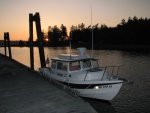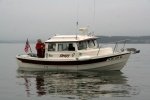Gene&Mary,
It is best to sleep the whole night with your CPAP on. If you are not, then the reason should be explored, because, CPAP should be comfortable enough to wear for the full night, and you should be waking rested and refreshed. Typical nights should be in the 7-8 hour bracket for most people.
First, your CPAP supplier should have provided you with cleaning instructions. But, if it came by UPS, the UPS driver probably didn’t go over them with you.
General Recommendations for Cleaning:
Mask; should be cleaned every day. Something between a wipe down with diaper wipes to a full vinegar soak. Soapy water is good, rinse and air dry. Mask, daily.
Hose; once a week, unless you turn off your machine before the hose is completely dried out. (If there is water in the humidifier chamber, there is moisture in the hose also.
Humidifier; a vinegar solution soak somewhere between once a week and once a month. This frequency depends on use. IF you run the chamber dry every morning, then 2 – 4 weeks should be adequate. On the other hand if you still have water in the chamber when you get up and turn the machine off, It needs to be emptied and dried.
The humidifier; should always have distilled water only. The water chamber should never be left sitting with water from on night to the next. (That would be like an incubator chamber for bugs.)
The Filters; Oh yes, your machine has filters and they do need to be changed, occasionally. Some are foam and washable, some have 2 parts, a fine (HEPA) filter and a foam (Hair) filter. The changing frequency is entirely dependent on your living conditions. An unchanged filter will shorten the life of your machine, may lower your pressure, and may contribute to foul odor through the machine.
Some folks prefer to run without a humidifier on the system. In some cases, some folks (your truly is one), use a different machine on board the boat, and because the humidifiers take up considerable battery power we opt to only run the compressor (CPAP) and not include the humidifier. If you are using that approach, sometimes a saline nasal spray helps to moisten the mucosa before and after the CPAP therapy. (Saline nasal spray is not a prescription medication, and is easy to use and (for me) makes my dry CPAP nights tolerable.
Using a heated or non-heated hose is a matter of preference. Most machines have an adjustability to allow you to have as much or as little amount of moisture as makes you comfortable. The settings vary considerably depending on where in the country, how warm or cool your bedroom is, the season of the year, and the type of mask you are using. Even the auto adjust features have some adjustment settings to start with. Check out your instructions, or your DME provider.
Hope that helps some,
And to all a Good night, always.
Harvey
SleepyC:moon






